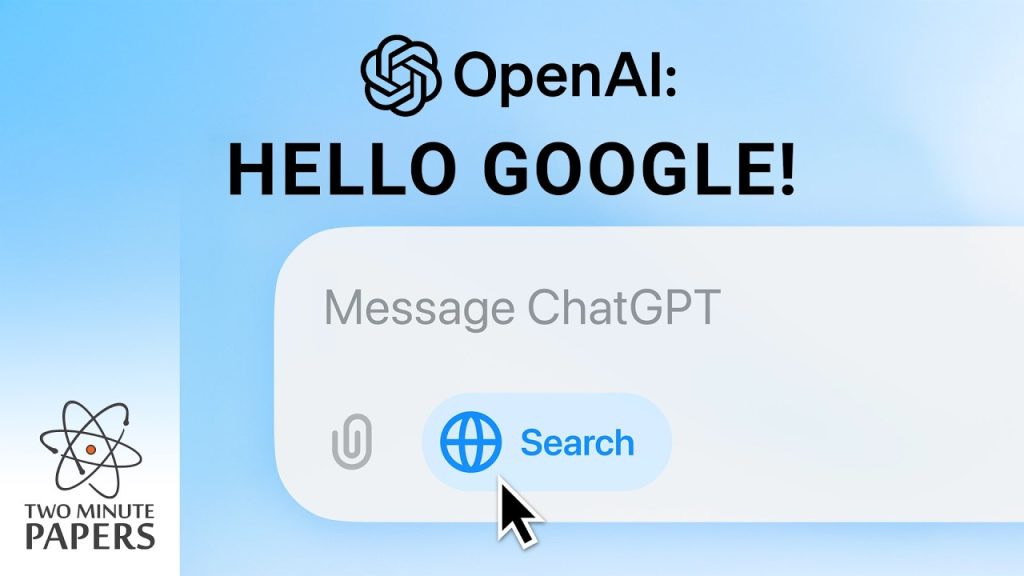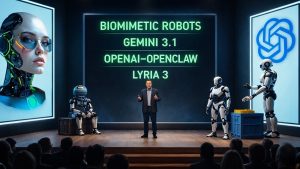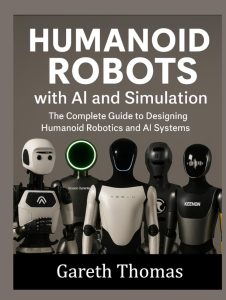Exploring AI’s Bold Leap Into Internet Searches

AI is making waves in the world of internet searches, evolving from a mere assistant to a tool for complex inquiries. Imagine a search engine that understands you like a best friend, offering tailored results and clearer answers. It’s no longer just about finding information, but how effectively it connects with your needs.
With AI, searching the web isn’t a chore anymore but an adventure. From planning trips to refining dinner choices, AI transforms user experience, making it impressive and informative. This breakthrough is only the start as researchers push the boundaries of how AI interacts with the digital realm.
The Rise of AI-Powered Search Engines
Everyone uses Google, but what if something more advanced was available? That’s where ChatGPT and similar AI models come into play. These aren’t just for assisting but also for complex web searches. Imagine planning a trip or finding dinner spots that fit your taste with ease. It’s like Google, but smarter!
The most fascinating part is the way these models cite their sources. Ensuring the information you’re getting is accurate, not some wild guess from an AI “hallucination.” You get definitive answers, compiled from multiple and reliable sources, making your search experience not just thorough, but trustworthy.
AI-enhanced search engines are evolving, giving users the chance to ask follow-up questions like never before. Want to know the weather for a specific day or check your stock performance? No problem. It’s all about answering complex inquiries with the precision of a pro detective.
Unveiling the Hidden Dangers
The dark side of AI is its potential for making stuff up. Imagine asking about historical facts and getting fictional tales. That’s where these ‘hallucinations’ come into play. They’re not common but still present, casting a shadow over the brilliance of AI.
These hallucinations can be as annoying as pop-up ads in a search engine. It’s crucial that AI doesn’t mislead with wrong answers. New advancements are reducing these errors, but caution is still needed. We want accuracy, not a blend of facts and fiction.
The Impact of New Research Papers
Opening the pages of recent research, AI is getting a boost. A new OpenAI paper introduces a dataset that makes these AI models more adept at answering complex questions.
This dataset entails high correctness over varied topics. It’s not just filled with simple facts but challenges the AI to dig deeper, offering insightful answers rather than flat guesses. Imagine an encyclopedia tailored to your curiosities.
AI’s responses are under scrutiny; their correctness levels are tested, making the comparison between full-fledged models and their mini variants interesting. Spoiler alert: discrepancies are huge, showcasing room for improvement even at advanced stages of development.
Consistency in AI Responses
Consistency is key when AI is answering questions multiple times. AI’s ability to repeat the same information correctly shows its reliability.
Flagship models show they can be consistent most of the time, unlike people who flip their opinions often. Yet, they’re not perfect. This consistency gives hope for trust in future applications.
This dataset is crucial for AI’s growth. It helps build confidence in AI’s answers, reducing the chance of hallucinations and pushing for reliable, consistent information in a world full of uncertainties.
How AI Gains Awareness
Surprisingly, AI might know when it’s wrong. By gauging confidence in their answers, these models adjust. When confident, they’re likely right. Less confidence? Less accuracy, obviously.
This self-awareness means AI can be relied upon for search tasks, aligning more closely with human-like reasoning while filtering through searches.
The models’ confidence levels help refine their search capabilities, making the AI feel more like an informed assistant rather than a quirky guessing machine.
Adventures in AI-based Searching
AI’s search function isn’t boring. Users can ask more interesting queries, like landscaping ideas, and receive enriched answers accompanied by images and step-by-step guides.
No more endless, irrelevant links. Instead, AI integrates the source, making the original creators visible, stressing their importance and rewarding content creation. Meanwhile, it offers a more fun and direct search journey.
The thrill of AI is its potential to change the way we search, making internet browsing an enlightening and customized experience.
Addressing the AI Limitations
AI isn’t perfect, and it’s honest about it. When models miss the mark, they don’t pretend to be all-knowing. It’s like saying, “I don’t know,” rather than guessing.
Seeing AI as a tool, not a know-it-all, helps manage expectations. AI is still learning, developing like any tech — filled with trials and errors.
Focusing on improvement areas paints a realistic picture of AI’s journey, illustrating its potential and the persistent hurdles it faces in its advancement.
Advancements on the Horizon
From sentences to full paragraphs, AI answers adjust based on data accuracy. New datasets aim to improve responsiveness, targeting future-focused technology use.
With variations in sentence length and depth, AI is being polished to reflect natural human conversation patterns while answering consistently. This reduces awkward moments in interaction.
AI is on its way to delivering processes and information smoothly, transitioning towards becoming a reliable tech with dynamic user interaction abilities.
AI in Real-time Applications
AI’s practicality is evident in everyday scenarios. Whether searching for recipes or conducting complex scientific inquiries, these models are paving the way.
They adapt to real-world use, showcasing rapid advancements. It’s an AI revolution approaching, impacting traditional and modern life facets, making tasks smoother.
There’s an ongoing exploration of applying AI’s intelligence in novel areas, encouraging future integration into all aspects of daily living.
Experiencing the Future
AI is making strides in providing user-friendly solutions, driving innovation in how searches are done. It’s only a glimpse of the future.
Beyond search engines, AI is redefining how info is compiled and used, promising a revolutionary shift in digital interactions. As AI continues evolving, its adaptability holds the key to its bright future.
AI’s leap into enhanced searches is just the beginning of something amazing. It teases a future where browsing becomes smarter, intuitive, and reliable. The possibilities seem endless with AI driving our digital curiosity.
Source: Youtube





